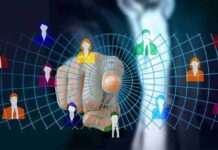Top soft skills HR Leaders need for Hybrid Workplace
COVID-19 changed many employees’ interests and overall perspectives on work. Some of them are already eager to return to the office, while others still prefer to work from home. The biggest impact of the pandemic has been on the “Work”, “Workers” and “Workplace”.
Transforming workplaces to accommodate the needs of the employees has now become a subject of utmost importance for employers. However, we also need to ensure that the employees stay continuously engaged with the organization while maintaining their productivity and performance.
This new form and shape of the organizations is calling for a revisit of the soft skills that HR professionals need to develop in order to ensure that they continue to remain relevant.
One of the biggest reasons why businesses have been able to maintain continuity despite a raging pandemic was due to the steps that were already taken by the organizations to digitalise their business processes in order to increase operational efficiencies. However, the pandemic accelerated this speed of change in an exponential manner.
It is these digitalised processes that were already in place or those that were getting implemented helped the transition to a remote and hybrid way of working to ensure maintain the levels of productivity in a digitally collaborated work environment.
As the times have changed, the roles and responsibilities of the human resources professionals are also undergoing a process of transformation and evolution. The new “HR Avatar” is coming to life.
The skills that HR professionals need to focus and sharpen in the hybrid environment are: (a) Digital Capability (b) Emotional Quotient – higher emotional connectivity to create an engaged workforce in a digital environment (c) Analytical ability – to see patterns in unstructured data/information and join the dots (d) Care Orientation – Holistic employee wellbeing (e) Managing performance in a digitally connected environment.
Therefore, some of the critical soft skills for HR Professionals in today’s hybrid workspace are:
Emotional Quotient
Mastery of social graces may be the lynchpin of a successful HR career – yet, it can be difficult to “teach” these types of skills.
Having self-awareness, awareness of one’s employees, the ability to work as a team, and an overall friendly demeanour are invaluable skills, but very much personality-linked. It’s for that reason that they are so much in demand in HR Professionals.
It’s also important for an HR professional to maintain a good level of “social knowledge” of employees at a company. Being aware of the special personal events of an employees’ life and their professional accomplishments, being sensitive and empathetic facilitates HR professionals to establish deeper emotional bonding within the organization especially in an environment where the employees are now getting more and more digitally connected.
In a hybrid working environment, it is becoming imperative for HR professionals to leverage their emotional quotient to create and sustain the “Organizational Glue” which is based on a recipe of the culture and values of the organization. If they can do this successfully it would be possible to create an environment of engagement thereby leading to retention of talent.
Digital Capability
HR professionals need to maximize the potential of the various digital platforms to engage with the employees and also to scale up the operational efficiencies of the different people processes.
The workforce of today spends a large part of their professional and personal lives on the various digital/ social media platforms. HR professionals need to understand, appreciate the nuances of these digital engagements and ensure that they get themselves adequately aligned to this environment. This would only enable them to relate better to their employees in this “Phygital” work environment.
Analytical Ability
HR professionals will be required to revisit their analytical ability and upskill the same to suit the demands of the hybrid working environment. The current organizational environment is marked not only by the increasing presence of people analytics but also by the challenges of the external VUCA environment.
This duality of business reality will require HR professionals to sharpen their capability on seeing a pattern in an unstructured data set, joining the dots, and arriving at proactive decisions on managing talent. They would be required to aggressively use technology and leverage the analytical ability to determine the talent management strategies of their organizations in an ever-changing business environment.
CARE Orientation
In the post-pandemic times, the holistic wellbeing of employees has gained a position of paramount importance for organizations. HR professionals along with their business partners are being required to provide an environment that ensures both physical and mental wellbeing of the employees.
Companies are constantly reviewing and gradually rebooting their office facilities in a calibrated manner. Employees are being advised to return to their physical workspaces. As a result, initiatives are being taken to redesign physical workspaces to ensure health safety for the employees who are gradually coming back to their offices.
The employees are being asked to work on a hybrid model – both physical presence in offices as per roster and work from home on other days. However, a large number of employees are still on a continuous work from home mode based on the organizational requirements. This sustained WFH mode has created/ is creating immense emotional challenges for employees across the globe which in turn is affecting their health.
Managing the mental and physical health of employees has become a key deliverable for HR professionals. Hence, the ability to conceptualize, design, and deliver holistic wellness programs has assumed a position of high priority for them.
Managing Performance
Managing performance in a hybrid working environment has thrown up a new challenge to HR professionals. Defining of performance metrics, engaging in continuous performance dialogues, and managing productivity has become the new normal for HR professionals. Employees who are continuing to be on a digitally collaborative platform have to be constantly engaged so that they receive real-time feedback about their performance.
The employees are seeking constant feedback and instant appreciation of their efforts in this newly evolved work environment. Therefore, HR professionals will have to design reward and recognition schemes that meet the appreciation needs of the employees.
The HR professionals need to understand the psyche of the employees and appropriately design performance management processes. These processes may be designed to deliver the needs of identified groups of employees in an organization – thereby leading to multiple customised reward and recognition schemes as per the nature of work. Utilization of the digital platform for performance management has become imperative.
Thus, the HR professional would need to upskill their capabilities of managing performance in a digitally collaborative environment while keeping the entire ecosystem engaged. Effective management of performance in a hybrid environment will also ensure higher retention of employees.









